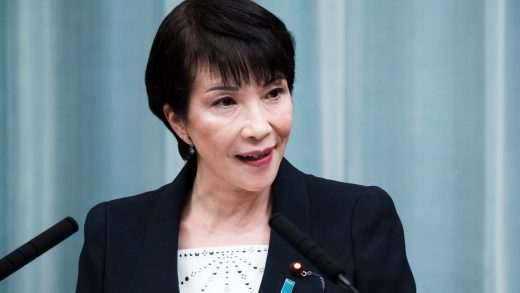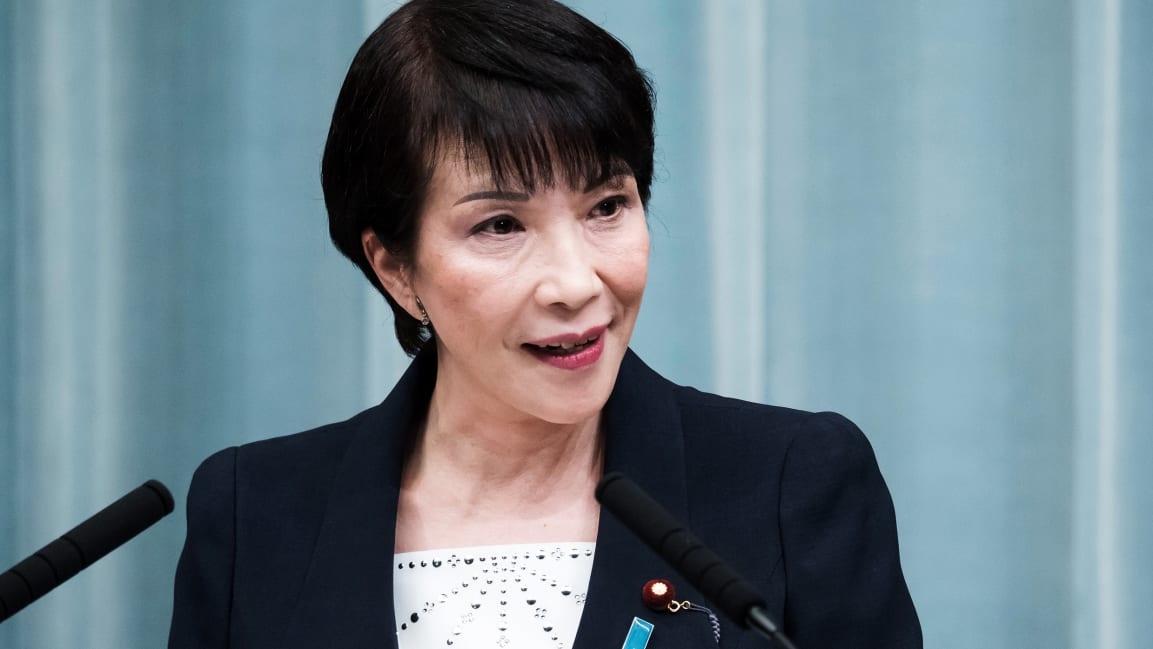Japan could elect its first female prime minister after Yoshihide Suga steps down
Japan Prime Minister Yoshihide Suga, who succeeded the country’s longest-serving leader in history, is stepping down after just one year at the helm of the ruling Liberal Democratic Party. The wildly unpopular Suga said last week that he would not seek reelection, clearing the path for a new premier to take charge of the world’s third-largest economy.
In the wake of Suga’s decision, two officially declared candidates and a handful of undeclared hopefuls have emerged as possible replacements. Notably, among the declared candidates is Sanae Takaichi, who is the party’s second-ever female contender for the top spot, and who would likely become the country’s first female prime minister if elected. Although frontrunners are still in flux, Takaichi—who served as head of internal affairs and communications in former Prime Minister Shinzo Abe’s Cabinet—has won the endorsement of the influential previous leader, who sits on Japan’s parliament and whose hand could tip the scales in the vote.
However, a victory for Takaichi in the deeply patriarchal society of Japan may not be as progressive as it seems. Takaichi’s views and policies closely mirror those of her former superior Abe: Both are staunch conservatives. Both are members of far-right ultranationalists Nippon Kaigi—a group of monarchists that seeks to restore the emperor to divine power; denies the brutality of Japanese troops during World War II’s Nanjing Massacre; and opposes feminism and gender equality. Controversially, both Abe and Takaichi have visited the Yasukuni Shrine, a landmark where more than 1,000 convicted war criminals are honored alongside soldiers who died in battle. Over the years, the shrine has been politicized as a glorification of Japanese militarism and its past wartime aggressions. Takaichi has also favored punishing media outlets that criticize the government, and imprisoning people who damage the Japanese flag.
Her recent campaign pledges to revitalize Japan’s pandemic-battered economy with a policy dubbed “Sanaenomics”—an homage to Abe’s signature “Abenomics,” which called for robust fiscal stimulus and monetary easing. She is also a proponent of nuclear power, rather than renewables such as solar or wind energy. In the foreign policy space, she has promised a tough stance against China.
Takaichi appears to be tough in other ways, too: According to media reports, she is a heavy metal music fan who played drums as a teenager, and drove motorcycles before giving up the hobby as a politician. Coming into the race as an outlier, she will have to stay tough to beat out her fellow hopefuls, including the longest-serving former foreign minister, Fumio Kishida, and former defense minister Taro Kono, who has scored high popularity with the public despite overseeing Japan’s sluggish vaccine distribution. Kono is backed by outgoing Prime Minister Suga, who struggled with negative publicity over his handling of the COVID-19 crisis.
(40)



